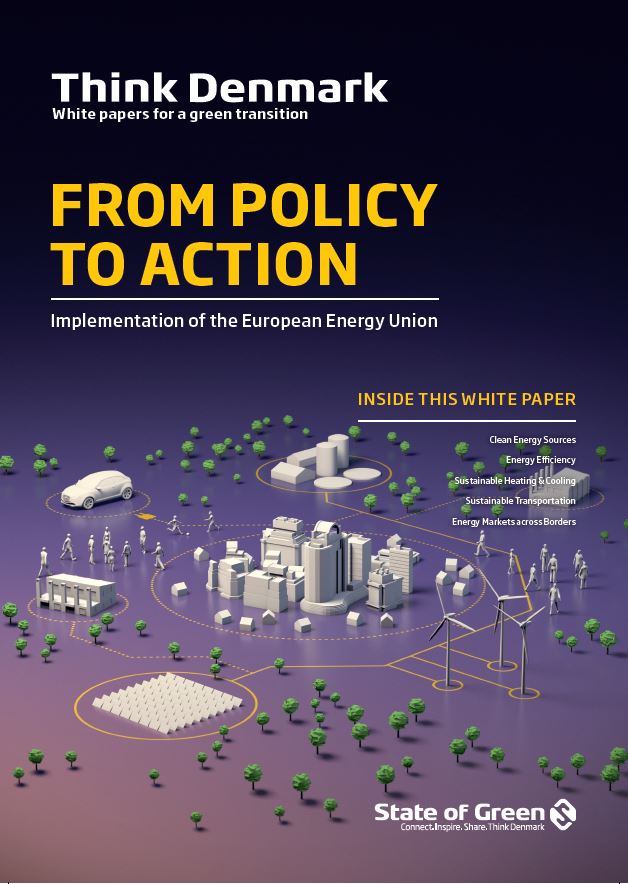Download our publication on from policy to action
This article is part of our publication ‘From Policy to Action’
Download nowPerspective
Energy efficiency in industry


Energy efficiency is a core part of the EU Energy Union. A green and competitive European economy will rely on the cost-efficient utilisation of the huge
potential that lies within energy efficiency measures.
The importance of energy efficiency as a key instrument towards a low-carbon economy has been stated in the European Clean Energy Package, where EU has increased the European energy efficiency target from at least 27 percent to at least 32.5 percent in 2030. A more efficient use of energy will allow Europeans to lower their energy bills and help protect the environment. Energy efficiency should be increased at all stages of the energy chain, from generation to final consumption.
The EU has agreed on the “energy efficiency first” principle. Consequently, energy efficiency improvements need to be realised whenever they are more cost effective than equivalent supply side solutions. End use energy efficiency alone can deliver 35 percent of the cumulative CO2 savings required by 2050 to meet the Paris Agreement’s temperature goals, according to the IEA (2018).

This article is part of our publication ‘From Policy to Action’
Download nowThe global investment in energy efficiency reveals an upward looking trend and the IEA (2017) has calculated that investments in energy efficiency investments amounted to to EUR 202 billion in 2016. Consequently, energy efficiency investments represent 13.6 percent of the EUR 1.49 trillion invested across the entire energy market.
Investments in efficient buildings account for 58 percent of the investments in energy efficiency, whereas the transport sector comprises 26 percent and the industry 16 percent. These investments are well in line with the fact that IEA (2014) estimates that with the current pathway, two thirds of the global
energy efficiency potential will remain untapped in 2035.
In buildings, less than 20 percent of the economically viable potential will be achieved. Similarly, less than 40 percent in the transport sector and less than 45 percent in industry will be achieved. Energy intensity differs significantly across sectors, as well as across EU member states borders. The increasing global focus on energy efficiency, together with strong cases of cost effective energy efficiency projects will pave the way for further efforts and investments. This chapter shows a selection of innovative and energy efficient solutions.
publications
Energy efficiency in industry
+7
Perspective
Sector coupling
+9